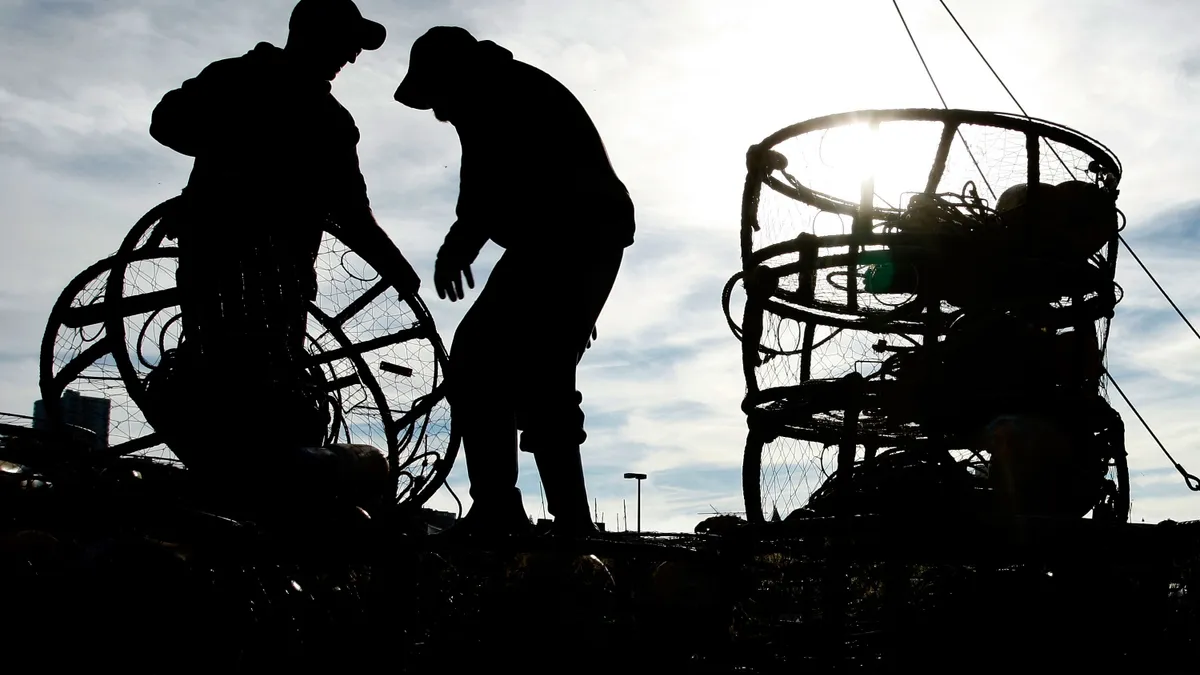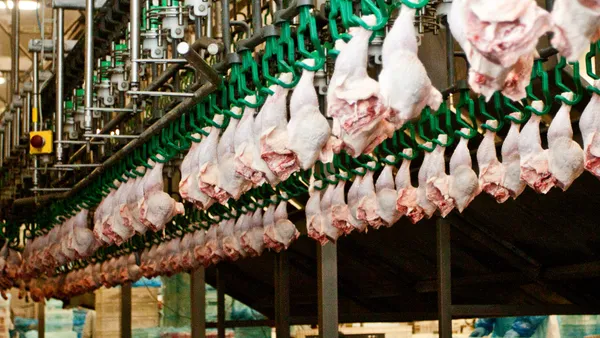Dive Brief:
- Two U.S. senators last week reintroduced a bill that would encourage the expansion of offshore aquaculture operations, a measure that has failed to pass multiple times due to environmental and policy concerns.
- The Advancing the Quality and Understanding of American Aquaculture Act would designate the National Oceanic and Atmospheric Administration the lead federal agency for marine aquaculture. NOAA would be tasked with harmonizing the offshore permitting system and leading a research and grant program to spur innovation in the industry.
- The bill, sponsored by Sens. Roger Wicker, R-Miss., and Brian Schatz, D-Hawai'i, is the latest attempt to create a comprehensive framework for fish farms and other aquaculture projects in federal waters.
Dive Insight:
On a global scale, the U.S. is a relatively minor aquaculture producer, ranking 18th worldwide, according to NOAA. Encouraging seafood production offshore would help meet rising demand for seafood while reducing U.S. reliance on imports, according to Wicker.
“The aquaculture industry is growing rapidly, but the lack of a national permitting system for federal waters has held back development and prevented American producers from growing more seafood at home,” Wicker said in a statement.
A complex federal permitting system has stymied U.S. producers from raising more seafood. Producers can sometimes need individual permits from up to four separate federal agencies, in addition to sign off from state and local governments.
In addition to creating an Office of Marine Aquaculture within NOAA to handle regulatory duties, the AQUAA Act would enhance access to investment capital, foster research and technology development, and create a national plan to identify areas suited for aquaculture operations.
While supporters see the economic potential of growing seafood offshore, it’s not that easy in practice. Lawmakers have faced a number of challenges and concerns trying to get the legislation off the ground. According to a 2019 Congressional Research Service report, most were related to the legal and regulatory environment of raising seafood relatively far off the coast; the potential for environmental harm; economic, trade, and stakeholder concerns related to developing a new industry; and business and institutional support.
Critics argue that expanding aquaculture could damage wild-catch fisheries and the environment by polluting waters near fish farms. Environmental advocacy group Don’t Cage Our Oceans issued a statement in response to the bill saying “it opens the floodgates to industrial fish farming and is an assault to our oceans, marine life, coastal communities and our planet.”
Still, as climate change pushes more fish away from the coasts and contributes to the decline in local seafood populations, some note that the U.S. may have no choice but to move offshore to remain competitive.
Drue Banta Winters, campaign manager for Stronger America Through Seafood, said in a statement that establishing a robust aquaculture industry is necessary “as climate change threatens wild stocks, offshore aquaculture would provide many benefits for our nation.”
After Wicker and Schatz filed AQUAA last week, Reps. Kat Cammack, R-Fla., and Ed Case, D-Hawai'i, introduced a companion bill on Monday. Both bills were referred to separate committees for further consideration.











